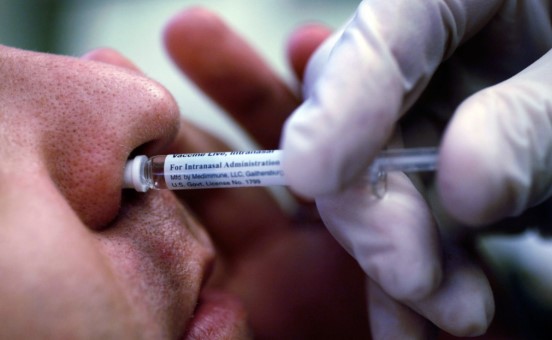Skipping vegetables could harm mental health: Study finds strong link between diet and psychological wellbeing
08/17/2025 / By Ava Grace

- Australians eating less than one serving of vegetables daily face 1.6 times higher odds of psychological distress (depression, anxiety, stress) compared to those consuming five or more servings. Women benefit most, with mental health improvements continuing up to five servings, while men peak at three to four.
- Women see ongoing mental health benefits with higher vegetable consumption, whereas men’s benefits plateau earlier. Fruit intake helps women (up to two servings) but shows minimal impact for men. Biological factors like hormones or metabolism may explain the gap.
- A companion study found that seven+ sugary drinks weekly nearly quintupled depression risk, while high-fiber diets modestly reduced anxiety. Processed sugars and refined foods may fuel inflammation linked to mood disorders.
- Traditional treatments have overlooked nutrition, yet studies link Mediterranean diets (rich in veggies, fish, healthy fats) to 33 percent lower depression risk. Modern processed diets may exacerbate mental health crises.
- With rising global mental health disorders, increasing vegetable intake could be a simple preventive measure. Researchers call for tailored guidelines, better food access and dietary education as part of mental health strategies.
Australians who neglect their vegetables may be doing more than just missing out on nutrients – they could be jeopardizing their mental health. A groundbreaking study from Queensland University of Technology (QUT) has found that individuals eating less than one serving of vegetables per day face 1.6 times higher odds of psychological distress, including depression, anxiety and stress, compared to those consuming five or more servings. The research, analyzing health data from over 45,000 people, reveals that women benefit most, with mental health improvements continuing up to five daily servings, while men see peak benefits at three to four. These findings underscore a growing body of evidence linking diet directly to mental well-being, challenging conventional views on mental health treatment and prevention.
The science behind the findings
Psychological distress, a broad term encompassing depression, anxiety and stress, has long been associated with genetic, environmental and lifestyle factors. But this study adds weight to the argument that diet plays a critical role. The researchers found that vegetable consumption had a dose-dependent effect – meaning the more vegetables people ate, the lower their risk of mental distress, particularly for women. Fruit intake also showed benefits, but only up to two servings per day and primarily for women. (Related: The brain-gut connection: Scientists explore why eating more fruits and vegetables improves mental well-being.)
Gender differences in dietary impact
One of the most striking revelations was the gender gap in dietary benefits. Women experienced continued mental health improvements with higher vegetable consumption, while men plateaued after three to four servings. The reasons remain unclear, but hormonal differences, metabolic responses, or varying nutrient absorption rates could play a role. This finding suggests that public health recommendations may need tailoring based on sex, rather than a one-size-fits-all approach.
The hidden dangers of sugar and processed foods
A smaller but equally compelling companion study of 129 adults found that excessive sugary soft drink consumption – seven or more cups per week – nearly quintupled the risk of depression. Conversely, high-fiber diets were modestly linked to lower anxiety. While the sample size was limited, the results align with prior research showing that processed sugars and refined foods contribute to inflammation and oxidative stress, both of which are tied to mood disorders.
Historical context: Diet and mental health
For decades, mental health treatment has focused on pharmaceuticals and therapy, often overlooking nutrition. Yet historical dietary shifts – particularly the rise of processed foods in the 20th century – have paralleled increasing rates of depression and anxiety. Earlier studies, such as those published in the American Journal of Psychiatry and British Journal of Nutrition, have shown that Mediterranean-style diets rich in vegetables, fish and healthy fats reduce depression risk by up to 33 percent. This new research reinforces that pattern, suggesting that modern dietary habits may be exacerbating mental health crises.
Why this matters now
In an era where fast food and sugary beverages dominate diets, mental health disorders are surging. The World Health Organization estimates that depression affects over 264 million people globally, with anxiety disorders even more prevalent. If something as simple as increasing vegetable intake can mitigate these conditions, it could revolutionize public health strategies. Governments and healthcare providers may need to prioritize dietary education alongside traditional mental health interventions.
Expert caution and future research
Researchers emphasize that correlation does not equal causation – eating more vegetables doesn’t guarantee mental wellness, but the association is strong enough to warrant further investigation. Larger, controlled studies are needed to confirm these findings and explore biological mechanisms, such as gut-brain axis interactions or micronutrient effects on neurotransmitters like serotonin.
Public health implications
Current dietary guidelines recommend five servings of vegetables daily, but compliance remains low. This study adds urgency to those recommendations, positioning vegetables not just as physical health boosters but as mental health safeguards. Campaigns promoting vegetable consumption could be framed as preventive mental healthcare, particularly for high-risk groups.
A call to action
The findings challenge individuals to reconsider their plates and policymakers to rethink nutrition campaigns. If mental health is truly linked to diet, then access to fresh produce must be treated as a public health priority, especially in food deserts where processed foods are often the only affordable option.
The message is clear: what we eat doesn’t just shape our bodies – it shapes our minds. While vegetables alone won’t cure mental illness, this study adds to mounting evidence that diet is a pivotal factor in psychological well-being. In a world grappling with a mental health epidemic, the simplest solution might just be on our dinner plates.
Watch this video about diet, gut health and anxiety connection.
This video is from the NNBLBlog channel on Brighteon.com.
More related stories:
Eating Raw Fruits & Vegetables is Healthy.
Eating more fruits and vegetables builds stronger bones.
Study finds that eating fruits and vegetables improves optimism.
Eating More Fruits and Vegetables Brings down Diabetes Risk.
Beat depression by eating more fiber, vegetables.
Sources include:
Submit a correction >>
Tagged Under:
Anxiety, depression, diet, distress, gut health, mental health, nutrients, pharmaceuticals, psychological distress, Study, therapy
This article may contain statements that reflect the opinion of the author




















